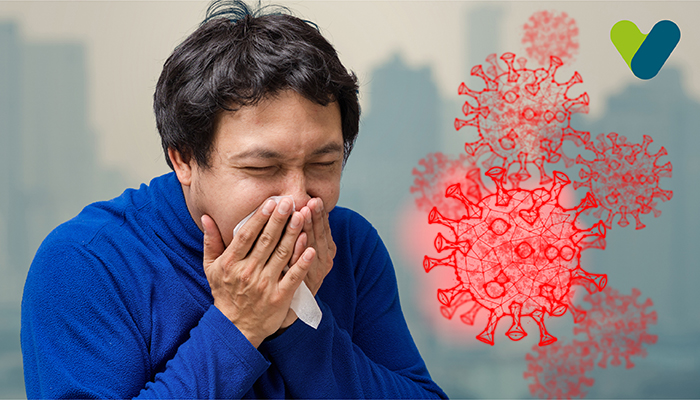By the beginning of 2020, the Coronavirus, or COVID-19, had taken the world by storm. The virus originated in China, and by March 2020, WHO had proclaimed a global pandemic due to COVID-19.
Multiple labs and institutions backed by governments throughout the globe have been working on finding a vaccine for the virus since it first emerged. COVID-19 vaccinations were made accessible to the general population in late 2020, declining cases since then. However, many countries around the world are still seeing a rise in covid cases even when they have supplies of vaccines. The pandemic is not over yet.
What is COVID-19 or Coronavirus?
Coronavirus (COVID-19) belongs to the family of viruses known to cause illness in humans and other animals. Seven different viruses belong to this family, which has caused other pandemics such as SARS and MERS.Origin Of Coronavirus
Coronavirus is found in animals such as bats, camels, and cats. The virus does not mainly infect the animal, but they do live in them. There is a chance that the virus can spread to other animals through animals that have the virus in them. As the virus jumps from animal to animal, it eventually reaches humans, precisely what happened with Coronavirus. As mentioned earlier, the first case of COVID-19 was reported in Wuhan, China, where it is thought that the first person came in contact with the virus from food markets where fish, meat, and other live animals are sold and bought. The evidence or research on how the first victim of Coronavirus was infected is still unknown, but the virus does spread from person to person through air or surface. How Coronavirus spreads is still a topic of research.How does Coronavirus Spread?
According to all the data present to us currently, it has been noted that COVID-19 mainly spreads from person to person who has had close contact. The virus travels from one person to another through the respiratory droplets released by the person in coughing, sneezing, or talking who is already infected by the virus. When someone inhales these droplets, they have a very high chance of getting infected by the virus. One can get infected by Coronavirus by touching surfaces that already have droplets of the virus on them. A person infected by Coronavirus might not even show the symptoms of the virus infection.Variants of the Virus
As is the case with any virus, as long as Coronavirus is around us, it will continue to affect more people and mutate itself. The mutation of viruses is vital, especially in influenza and coronaviruses. A new variant that might develop due to mutation of the virus might be less severe than the previous one; however, it is very much possible for the new mutation to be even worse and more life-threatening than the previous variant. One of the deadliest variants of Coronavirus that has come out due to mutation is the delta variant (strain: B.1.617.2). It is more contagious and results in more complications when compared to the original variant of the virus.Symptoms of Coronavirus
Even with the current rollout of vaccines, the pandemic is far from being over. It is critical to be aware of all covid-19 symptoms, which include –- Sore Throat
- Body Ache
- Heartache
- Nausea
- Diarrhoea
- Coughing
- Fever
- Breath Shortness
- Congestion or Runny Nose
- Trouble While Breathing
Treatments of Coronavirus
Depending on the symptoms, the treatment of Coronavirus differs. If someone has not been admitted to a hospital even though they are suffering from the virus, they are not suggested to take any antiviral to treat themselves. According to the severity of your case, you might need –- Oxygen supplements maintain your oxygen levels as with many serve covid cases, and there is a sharp decline in the body's oxygen levels.
- Mechanical ventilation
- Extracorporeal Membrane oxygenation
How to Prevent Coronavirus
If you are yet to get vaccinated, you can still reduce the risk of catching the virus yourself or spreading it to others. You can take precautions such as –- Keep a distance of at least 6 feet from another person in public
- Avoiding crowded places or making crowds in public. It would be best if you also avoided places which have poor ventilation. Stay clear from huge crowds if you are prone to illness or have a weaker immune system. During epidemics, especially, follow the instructions of your healthcare authorities.
- Mask is worn whenever you head outside in crowded areas. Face masks are significant in the prevention of corona spread. They prevent you and the people around you from getting infected by the virus.
- Covering your mouth whenever you sneeze or cough. Coronavirus is known to spread through air droplets. After cleaning your mouth, immediately throw away the tissue paper that you have used.
- Washing your hands. Whenever you come back home after visiting outdoors, it is essential to wash your hands immediately. Even when staying indoors, it is essential to wash your hands multiple times a day to prevent the risk of catching the infection.
- Cleaning and disinfecting yourself. Covid-19 can spread through surfaces of cardboard and plastics as well.
- To prevent the transmission of viruses from your hands, avoid touching your eyes, nose, and mouth.
